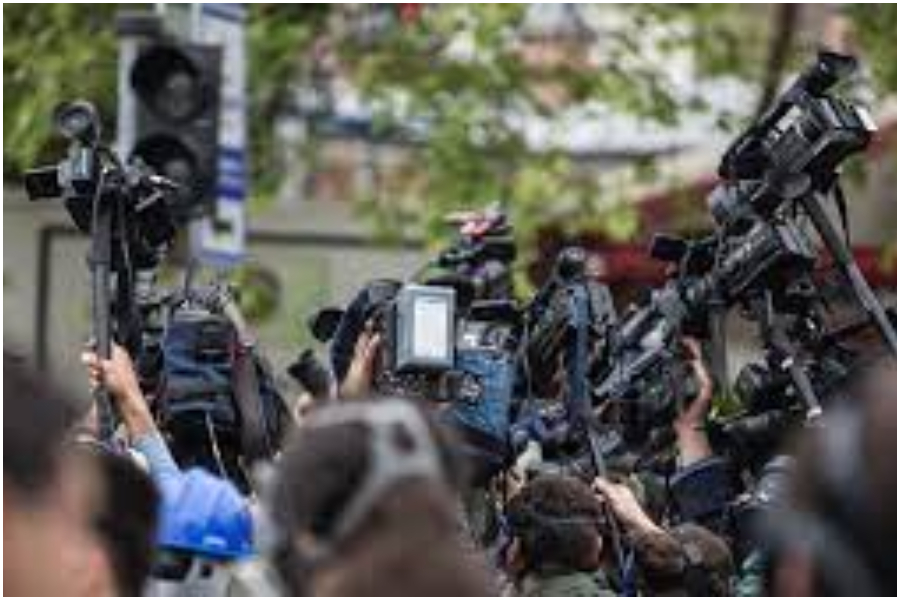North-East stakeholders in the media industry have cautioned journalists against sensational reportage to facilitate credible and peaceful 2023 general elections.
The stakeholders, which included media practitioners, politicians, unionists and activists spoke while responding to a survey by the News Agency of Nigeria (NAN) on political thuggery in Bauchi, Damatruru, Dutse, Gombe and Yola.
According to them, media is critical towards ensuring violence-free, fair and credible elections in the country.
The Chairman of Nigeria Union of Journalists (NUJ) in Gombe State, Mr Saidu Malala said media had a critical agenda-setting role towards promoting peace and harmony in the country.
He added that the support of journalists through peace-oriented news would help create a peaceful political atmosphere that will contribute to the integrity and credibility of elections.
Journalists have a duty to report issues that will not fuel violence in the country, even though we have a responsibility to inform the public in a professional manner.
There are reports that may trigger violence if not handled properly in line with the professional ethics, we must be guided in this regard.
We need peace not just for election but for our everyday activities, and as critical stakeholders we owe the society reportage that will promote peace and unity, he said.
Malala urging journalists to be objective, he advised them to be security conscious so as not to become victims of violence or thuggery during electioneering campaigns.
You must assess the security situation of any event before you embark on any journey to cover events.
Don’t put yourself in a position where you will be vulnerable in view of the increase in thuggery in Gombe State, he said.
The Council Chairman in Yobe, Mr Rajab Muhammad, also tasked media organisations to shun airing programmes capable of disrupting peace ahead of the 2023 elections.
He further noted that such inciting programmes were against the ethics of the profession, and stressed the need for media practitioners to be objective as enshrined in the NUJ constitution.
Reporters and sub-editors should aim at objectivity while dealing with political stories. They should not allow their personal bias or ideas to creep into a story.
They should not take sides but try to present divergent views to achieve balance in their reportage, he said.
Furthermore, Muhammad also urged politicians to avoid desperation in politics, adding that do-or-die politics is inimical to the entrenchment of democratic governance.
Shettima Ja’afar, Director, National Orientation Agency (NOA) in Borno, in his contribution, attributed thuggery to desperation exhibited by some politicians.
According to him, it was good for the media to sanction airing inciteful and vulgar language by politicians during their campaigns.
He said this was necessary towards ensuring hitch free election, adding that the media as major stakeholder should not be promoting contents that will jeopardise the process.
Reporting hate speech by the media will create tension and violence if not handled with caution.
He said that the Agency in collaboration with other stakeholders will create a forum for collective action towards violent-free election.
The NOA official blamed spate of thuggery in the country to misuse of social media by some self-seeking elements.
The conventional media are trying, and regulated to some extend unlike the social media. It is being used to spin news, spread falsehoods and hate speech capable of breeding violence.
He urged the youth to shun misuse of social media and participate actively in the process to ensure peaceful election.
Furthermore, he advised politicians and political parties to prioritise consultative engagement to promote internal democracy and encourage growth of democratic culture.
Mr Ishaka Dedan, the NUJ Chairman in Adamawa, while speaking said the Council had sensitised media executives and journalists on the dangers associated with sensational reportage.
Dedan, also said that the Council had adopted effective mechanism to ensure that media organisations and journalists run their services in line with professional ethics and guidelines governing their operations.
In the same vein, Dr Abdullahi Mohammed, a lecturer, Department of Mass Communications, Adamawa State Polytechnic, stressed on the need for the journalists to be apolitical, neutral and objective in their reportage.
Media houses should base their content on credible sources and not to report something that might constitute threat to corpotrate existence of the nation.
When it comes to announcement of election results, they shouldn’t preempt the electoral umpire, he said.
Similarly, a Bauchi-based political analyst, Mr Sabo Mohammmed, identified fake news as a bane to effective journalism.
He said the role of the media in agenda setting calls for caution and application of professional in discharging its constitutional mandate.
Journalists need to be meticulous in sifting stories that are true and those that are false, used in achieving certain ends, he said.
David Ayodele, a veteran journalist, on his part, said the media plays significant role in ensuring fair, objective, balance and proper investigation of news materials.
You have a responsibility to be credible, professional and you must be residual of standard by setting a professional code for others to follow, especially during electioneering campaigns, he said.
He also said that it is necessary for the sustenance of the country’s nascent democracy and political stability, adding that the media must be used positively for societal good rather than destructive purposes.
However, he urged journalists to be fair and objective in reporting election processes.
Ayodele also tasked them to show more decorum and professionalism in reporting security and humanitarian issues.
